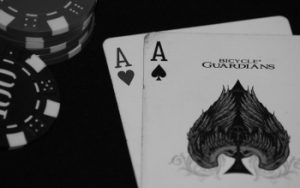 The journey of a poker player is long and arduous. Upon reaching its midpoint, this journey gradually begins to improve until the player finally reaches the highest level of mastery. The main goal of this journey is to fully conquer the mountains of poker. So, how does a player reach the peak and develop true mastery?
The journey of a poker player is long and arduous. Upon reaching its midpoint, this journey gradually begins to improve until the player finally reaches the highest level of mastery. The main goal of this journey is to fully conquer the mountains of poker. So, how does a player reach the peak and develop true mastery?
Mastery fascinates us endlessly. From Wolfgang Mozart to Albert Einstein, from Garry Kasparov to Michael Jordan. These masters have always intrigued and attracted the human spirit. Therefore, it is no surprise that scientists have been intensively studying the phenomenon of mastery for 100 years. Compared to the aristocratically vague theories talking about “born geniuses,” we now have a much clearer picture of how skills are developed. Researchers have identified four stages of mastery:
- Unconscious incompetence
- Conscious incompetence
- Conscious competence
- Unconscious competence
The stage of unconscious incompetence begins with every new activity. It is a blank slate. Being unconsciously incompetent means having poor skills but not even realizing what is wrong or why your skills are poor.
Remember when you first sat down at the poker table. You probably used hands like Q6, A3, or 45o, made min-bets or over-bets in tiny pots, barely understanding whether such play was good or bad. This is unconscious incompetence.
In neuroscientific terms, unconscious incompetence is the mind's attempt to deal with an external system without having an internal network that responds to each structure of the external system. For example, when you first came to play poker, your mind did not yet have mental associations with Q6o to know whether it was good or bad. Only by gathering information and feedback that comes after this structure, the mind will start to build clear and meaningful categories related to each structure of the external system (e.g., poker hands).
The second stage is conscious incompetence. At this stage, a person already notices their incompetence. They understand the real situation and what is wrong. We often experience this stage when learning foreign languages. Imagine a language you can speak a little, but you are still far from speaking correctly. You feel the incorrect accent, do not pronounce everything correctly, speak too slowly, and so on. You notice your mistakes, but you still cannot speak correctly all the time. Your vocal cords still need to be consciously controlled to pronounce words with the correct accent, the vocabulary is still narrow and disjointed, and so on. This stage is passed simply by practicing, speaking the new language, playing the piano, sculpting marble, playing poker.
The third stage is conscious competence. If you are attentive and think consciously, you will know what to do at this stage. Now you usually make good decisions while playing poker – you no longer call a flush on the river if the board shows double pairs, even if you want to. You no longer make decisions that you know you shouldn't make.
Now you notice all the elements that make up a poker match: bet sizes, betting patterns, timing tells, and so on. But all of this is processed consciously. You have to actively think about it. When you play well, all your mental resources are occupied. Neurologically speaking, your consciousness centers (neo-cortex) are actively working to process and interpret the information in front of you. If you slip out of conscious concentration at this stage, your game will significantly deteriorate.
The final stage of mastery is unconscious competence. At this stage, you play correctly without thinking about it. The most vivid example is driving a car. Most people who drive have been doing it for many years and are now at the stage of unconscious competence. While driving, they do not have to consciously think about shifting gears, which pedal to press and how hard, how to maneuver, or similar actions. While driving, they can hold a conversation, daydream, or listen to an audiobook.
In poker, this stage is marked by immediate knowledge of what you are going to do. You do not need to stare at the board and try to understand what is on it or imagine how your opponent will react to your bet. You just automatically make decisions. Almost always, such play indicates the achievement of unconscious competence.





